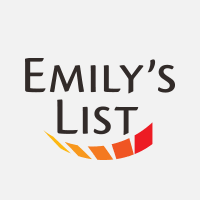There’s only about a month left until the Midterms, and organizations around the country are gearing up to mobilize their communities to show up at the polls on voting day. Are you ready to Get Out the Vote? Tune in to the following webinars to learn more about voter mobilization and voters with disabilities!
 On Thursday, October 11th at 2:00 p.m. Eastern, Nonprofit Vote will host the final webinar of their Midterms series on strategies and messaging on GOTV for nonprofits. Attend this webinar to learn how your nonprofit can effectively engage in nonprofit Get Out the Vote tactics to mobilize your community. Sign up for this webinar over at Nonprofit Vote.
On Thursday, October 11th at 2:00 p.m. Eastern, Nonprofit Vote will host the final webinar of their Midterms series on strategies and messaging on GOTV for nonprofits. Attend this webinar to learn how your nonprofit can effectively engage in nonprofit Get Out the Vote tactics to mobilize your community. Sign up for this webinar over at Nonprofit Vote.
On Tuesday, October 16th at 2:00 p.m. Eastern, the Great Lakes ADA Center will be hosting “The Right to Vote: Access for People with Disabilities“. During this webinar, Michelle Bishop of the National Disability Rights Network will discuss the status of accessibility of the voting process for people with disabilities. Attendees do have the option of earning 1.5 credit hours of Continuing Education Recognition.
On Thursday, October 18th at 1:00 p.m. Eastern, the American Association of People with Disabilities’ REV UP Campaign will host “Breaking Barriers to Voting”. This webinar, which is produced in collaboration with DOnetwork, will discuss navigating polling place barriers for people with disabilities and give attendees an opportunity to ask questions and get answers on their accessibility concerns.
 The 2018 midterm elections have already shown to be critical, with many underdog candidates winning their primaries in surprising upsets. GOTV efforts are a way for people with disabilities to make a difference in local, state, and national elections, often from their homes.
The 2018 midterm elections have already shown to be critical, with many underdog candidates winning their primaries in surprising upsets. GOTV efforts are a way for people with disabilities to make a difference in local, state, and national elections, often from their homes. Throughout last week’s hearings we saw protests inside and outside of the hearing room, arrests, arguments among Senators, and repeated requests from Democratic Senators to delay the confirmation process. The drama surrounding these hearings illustrates how many people have concerns about Judge Kavanaugh’s confirmation, and we unequivocally share those concerns.
Throughout last week’s hearings we saw protests inside and outside of the hearing room, arrests, arguments among Senators, and repeated requests from Democratic Senators to delay the confirmation process. The drama surrounding these hearings illustrates how many people have concerns about Judge Kavanaugh’s confirmation, and we unequivocally share those concerns.

